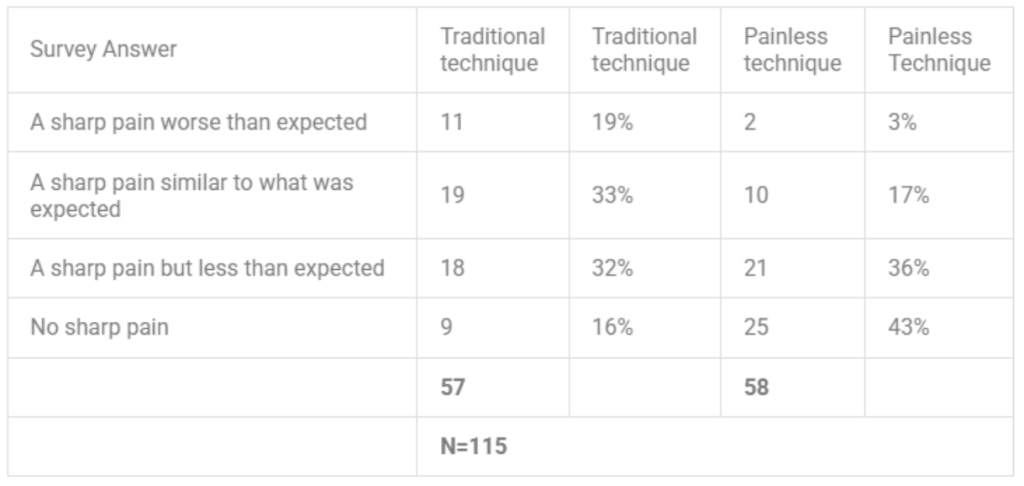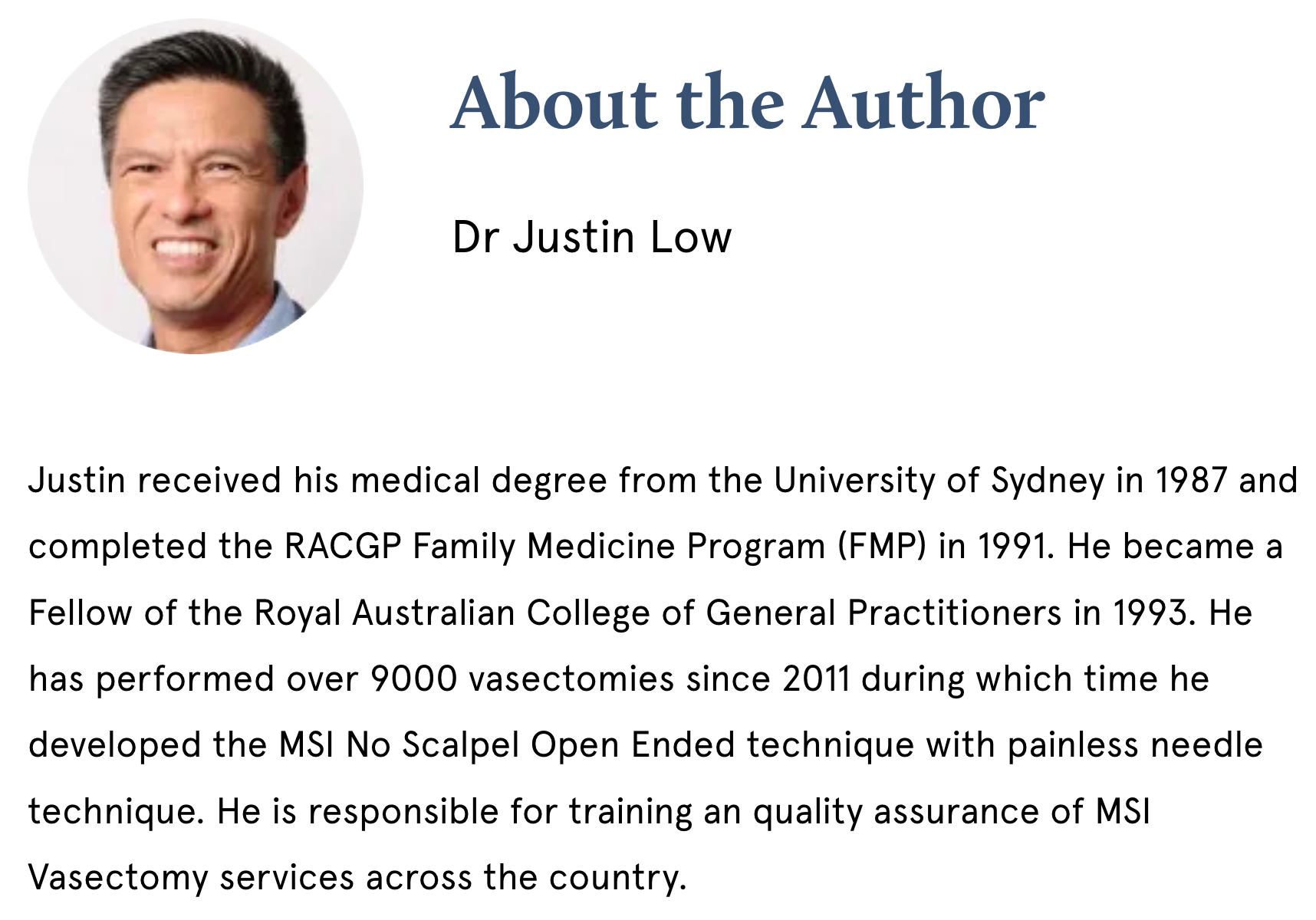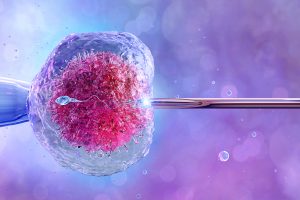With a no-scalpel, open-ended vasectomy – the technique used at MSI Vasectomy – most men experience little to no sharp pain during the procedure. Local anaesthetic is applied to the scrotum, which means you should not feel pain while the doctor works. At most, you may notice a sensation of tugging or a dull ache.
A vasectomy survey of 115 vasectomy patients highlights how pain is typically far less than expected. Among those who had the traditional anaesthetic method, 19% reported pain worse than expected, compared with only 3% using the newer painless technique. In fact, 79% of men who had the painless technique reported either less pain than expected (36%) or no sharp pain at all (43%). These results show how modern methods reduce discomfort significantly.

Managing discomfort after a vasectomy
Some mild aching or soreness can occur for 1-3 days after the procedure. This is usually well managed with paracetamol, supportive briefs, and cold therapy applied regularly for the first three days. Ibuprofen and aspirin should be avoided in the first week, as they can increase bleeding and bruising.
Most men recover quickly after a vasectomy, returning to light activities within a couple of days. If pain or swelling does not improve, the clinic’s aftercare line is available for support.
In short, with a no-scalpel, open-ended vasectomy, most men find the procedure virtually painless and recovery straightforward.


















